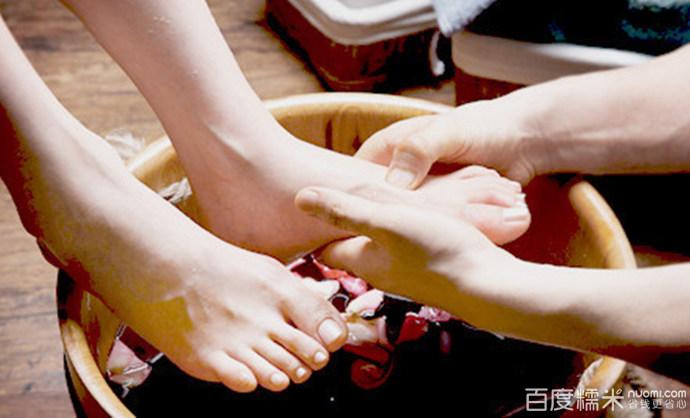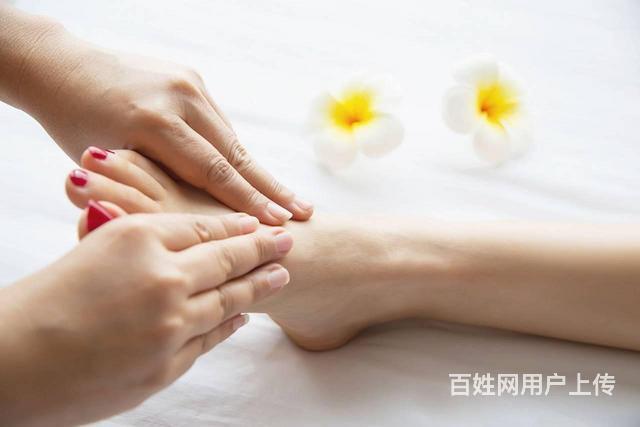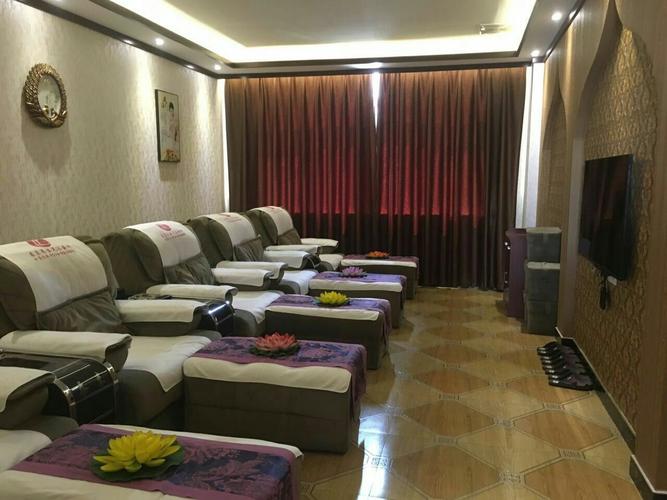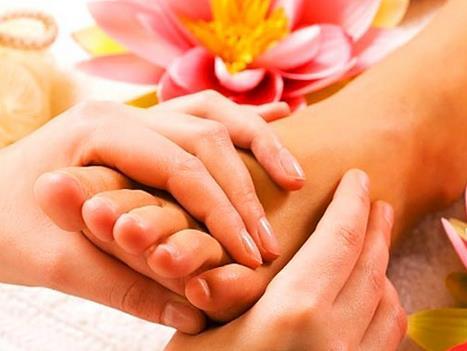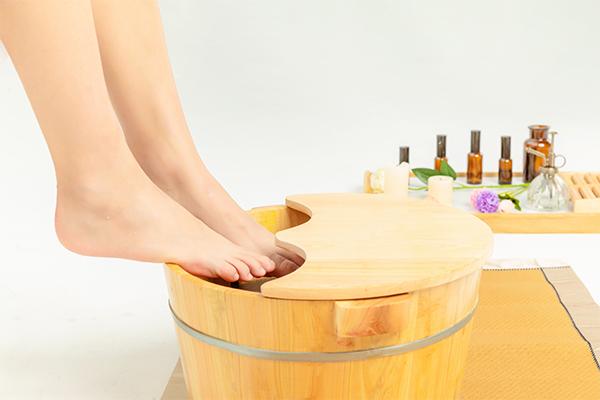- 本文目录导读:
- The Historical Roots of Foot Therapy
- The Science Behind Foot Therapy
- Benefits of Relaxing Foot Therapy
- Practical Applications of Foot Therapy
- Conclusion
Foot therapy, often referred to as reflexology or foot massage, is a time-honored practice that promotes overall health and well-being. In this article, we will delve deep into the benefits of relaxing foot therapy, exploring its historical roots, scientific basis, and practical applications.
The Historical Roots of Foot Therapy
Foot therapy has a rich history that spans thousands of years. Originating in ancient Egypt and China, this practice was believed to be a powerful tool for healing. In ancient Egyptian culture, hieroglyphics found in the tomb of an Egyptian physician depict scenes of foot massage, suggesting its importance in their medical practices. Similarly, Chinese medicine has long held the belief that the feet are a microcosm of the entire body, with various points on the feet corresponding to different organs and systems.
The Science Behind Foot Therapy
Modern science supports many of the claims made by these ancient traditions. Reflexology, a type of foot therapy, is based on the principle that specific points on the feet, hands, and ears are connected to different parts of the body. By applying pressure to these points, reflexologists believe they can stimulate the corresponding body parts and promote healing.
Studies have shown that foot therapy can have a variety of health benefits. For instance, research published in the Journal of Korean Academy of Nursing found that foot reflexology significantly reduced fatigue and improved sleep quality in elderly women. Another study in the journal Complementary Therapies in Clinical Practice demonstrated that foot massage could reduce anxiety and improve mood in patients undergoing coronary artery bypass graft surgery.
Benefits of Relaxing Foot Therapy
1. **Stress Relief**: One of the most immediate benefits of foot therapy is stress relief. The soothing touch of a skilled therapist can help to calm the mind and reduce anxiety levels. This relaxation response is mediated by the parasympathetic nervous system, which slows the heart rate, lowers blood pressure, and promotes a sense of well-being.
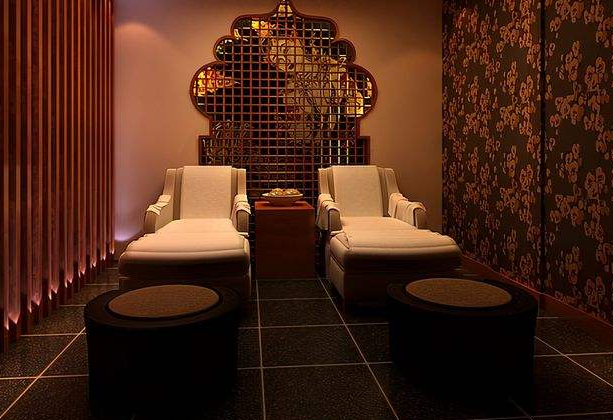
2. **Improved Circulation**: Foot therapy can also enhance blood circulation. The pressure applied during a foot massage helps to stimulate blood flow, which is essential for transporting oxygen and nutrients to cells and removing waste products. Improved circulation can also alleviate symptoms of conditions like peripheral artery disease and diabetic neuropathy.
3. **Pain Management**: Reflexology is often used as a complementary treatment for pain management. By targeting specific reflex points, therapists can help to alleviate pain in various parts of the body. For example, pressure on the reflex point for the lower back, located on the heel, can help to reduce back pain. Similarly, stimulating the reflex point for the head, located on the big toe, can help to relieve headaches and migraines.
4. **Enhanced Sleep Quality**: Many people who receive regular foot therapy report improved sleep quality. This benefit is likely due to the combined effects of stress reduction and pain relief. By promoting relaxation and reducing discomfort, foot therapy can make it easier to fall asleep and stay asleep throughout the night.
5. **Boosted Immunity**: Regular foot therapy sessions may also boost the immune system. The gentle pressure and massage movements can stimulate the lymphatic system, which plays a crucial role in immune function. A well-functioning lymphatic system can help the body to fight off infections and maintain overall health.
Practical Applications of Foot Therapy
Foot therapy can be easily incorporated into your daily routine. Here are some practical tips for enjoying the benefits of foot therapy at home:
1. **Self-Massage**: You don't always need a professional therapist to enjoy the benefits of foot therapy. Self-massage techniques can be just as effective. Start by sitting comfortably and applying a small amount of massage oil or lotion to your feet. Use your thumbs to apply pressure to different areas, starting with the toes and working your way down to the heel. Pay special attention to any tender or sore spots, as these may indicate areas of tension.
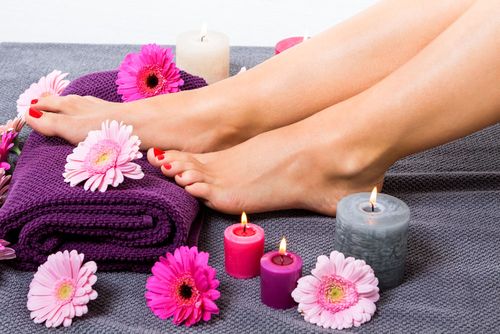
2. **Foot Soaks**: A warm foot soak can be incredibly relaxing and beneficial for the feet. Fill a basin with warm water and add a handful of Epsom salts. You can also add a few drops of essential oils, such as lavender or peppermint, for an added therapeutic effect. Soak your feet for 15-20 minutes, then dry them thoroughly and apply a moisturizer.
3. **Foot Rollers and Massage Tools**: There are many tools available that can enhance your foot therapy experience. Foot rollers and massage balls are designed to target specific areas of the feet and can be used to apply pressure to reflex points. These tools are especially useful for individuals who have difficulty reaching their feet or who prefer a more intense massage.
4. **Professional Treatments**: While self-care is important, there is no substitute for the expertise of a professional reflexologist. Regular sessions with a trained therapist can provide more targeted and effective treatments. Be sure to choose a licensed and experienced practitioner to ensure the best results.
Conclusion
Relaxing foot therapy is a simple yet powerful practice that can enhance your overall health and well-being. Whether you choose to incorporate self-massage techniques into your daily routine or seek out professional treatments, the benefits of this ancient practice are well worth the effort. By understanding the historical roots, scientific basis, and practical applications of foot therapy, you can make informed decisions about how to integrate this holistic approach into your wellness routine.
Embrace the soothing power of foot therapy and discover how this time-honored practice can help you lead a healthier, more balanced life.
版权声明
本文仅代表作者观点,不代表成都休闲网立场。
本文系作者授权发表,未经许可,不得转载。





